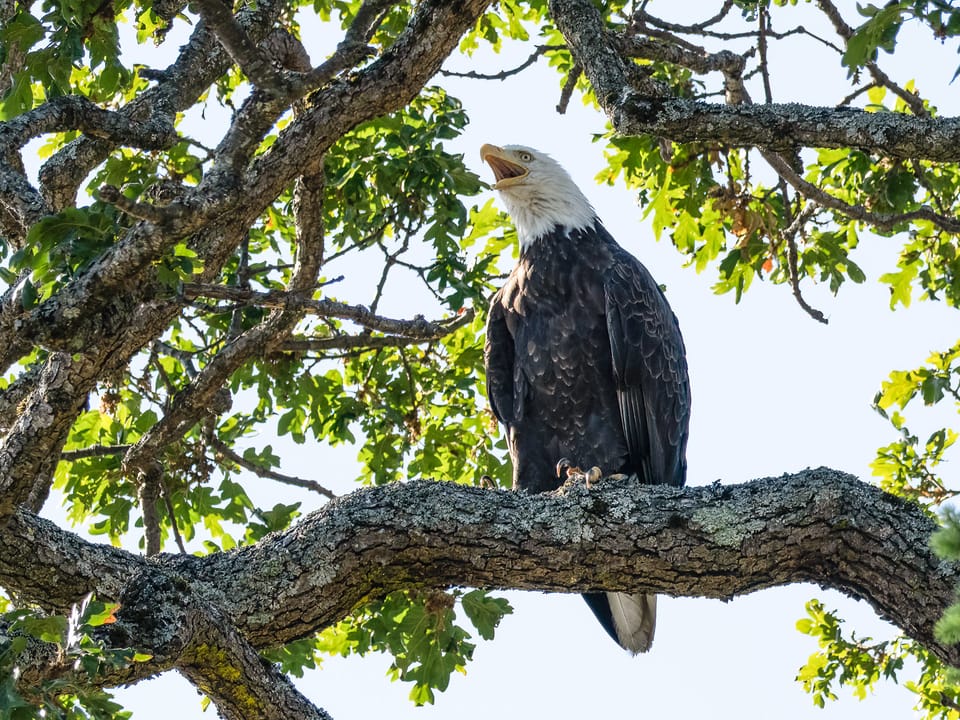EcoWest News, August 8, 2023

Welcome to EcoWest News, a weekly round-up of news and resources that you can put to use in addressing environmental issues and protecting the wild in your community.
Across the West
There are over 20 provincially rare plants at risk due to an oil sands mine expansion in Alberta’s McClelland Lake Wetland Complex – from pygmy water-lily to dragon’s mouth orchid. [Nature Alberta]
Crowds gathering to view roadside bears create problems for wildlife, viewers, and park officials. A survey regarding issues and strategies related to roadside bear viewing in Kananaskis provides some useful recommendations for education, human and infrastructure management. [Frontiers in Conservation Science]
According to the Business Renewable Centre, Alberta was on track to see $3.7 billion worth of renewables construction by 2023, creating over 4,500 jobs before it declared a moratorium on renewable energy projects. [Clean Energy Canada]
Slow down and keep a lookout for juvenile burrowing owls who are foraging on or near prairie roads at this time of year. [Sask Today]
The lifeless soil on one Vancouver boulevard is being brought back to life with water, mulch, and by letting the so-called weeds grow. [Rewilding]
Arctic foxes dig dens in nutrient-poor ridges on northern Manitoba’s tundra. Their food and personal waste enrich the soil and promote lush vegetation. [CBC]
Around the World
Low-emission zones attempt to reduce urban air pollution but impact the poorest drivers and put a burden on small businesses. LEZ should be accompanied by adequate public transit, safe bike lanes, and equitable subsidies for purchasing compliant vehicles. [Planetizen]
Recycling isn’t the only or even the best option. Reduce and reuse are much more effective. So is advocating for changes to product design and manufacture. [Anthropocene]
Forest Renewal
Large patches of fireweed are a sign of hope and resilience. The first plants to grow following a forest fire, they prepare the way for forest renewal. [CBC]
Logging practices should take into consideration the size and nature of the entire watershed and employ eco-friendly logging practices in order to prevent extreme flooding. [UBC]
Forest-harvesting practices that retain living trees throughout the harvested area sustain belowground life. [The Conversation]
Housing
A lightweight construction material and a fire-retardant, both made from fungi, could be safe, sustainable alternatives to the chemicals, foams, and plastics in our homes. [Anthropocene]
As insurance costs rise due to an increase in significant weather events, it’s worth investing in better protection for our homes, such as fireproof siding or floodproofing. [The Energy Mix]
Marine Traffic
Ikea is doing a lot better than other big-name retailers in cutting down on shipping pollution. [The Verge]
The world’s first methanol-enabled container vessel will use methanol captured from food waste on its 21,500 km voyage this summer. Maersk, the world’s second-largest container-shipping group, has already ordered 25 more vessels of this kind. [Fast Company]
Did you enjoy reading this week's EcoWest News? If so, please share it. Thank you! Andrew & Penny
Photo credit: https://www.flickr.com/photos/apmckinlay/53050932584
EcoFriendly West informs and encourages initiatives that support Western Canada’s natural environment through its online publication and the Nature Companion website/app. Like us on Facebook, follow us on Twitter or Mastodon, or subscribe by email.

Member discussion